Uncategorized
-
 Cosmology
CosmologyGravitational wave detection a big day for the Big Bang
On a snowy St. Patrick’s Day, our offices officially shut down by a late-winter storm, the Science News staff was abuzz over the biggest thing since the Higgs boson. On March 17, scientists announced the first direct evidence of the theory of cosmic inflation: primordial gravitational waves.
By Eva Emerson -
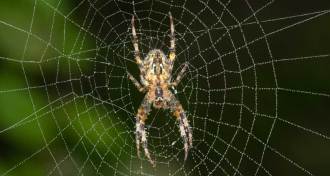 Ecosystems
EcosystemsCity spiders may spin low-vibe webs
Spider webs built on human-made materials have less background bounce than those built on trees and other natural surfaces, which might shrink the arachnid’s hunting success.
By Susan Milius -
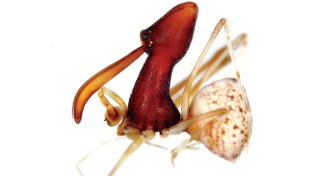 Animals
AnimalsPelican spiders: slow, safe assassins
Spiders, thank goodness, haven’t evolved assassin drones. But the specialized hunters of the family Archaeidae can kill at a distance.
By Susan Milius -
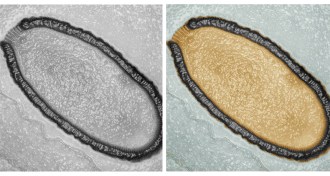 Life
LifeGiant zombie virus pulled from permafrost
After lying dormant in Siberian permafrost for 30,000 years, the largest virus ever discovered is just as deadly as it was when mammoths roamed the Earth.
By Meghan Rosen -
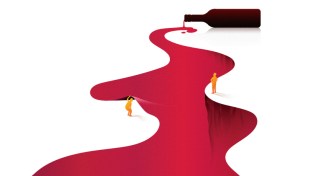 Psychology
PsychologyThe addiction paradox
Addiction is often seen as a chronic disease that requires maintenance treatment even after years of sobriety. But even without help, most addicts eventually can quit for good.
By Bruce Bower -
 Climate
ClimateCloudy forecast
Over decades climatologists have grown more confident in their projections of the future impact of greenhouse gas emissions. But whether shifts in cloudiness will amplify global warming continues to vex researchers.
-
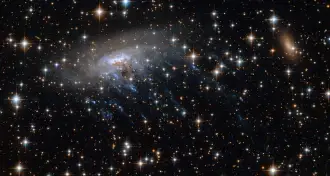 Astronomy
AstronomyGalaxy drags trail of stars behind it
A Hubble Space Telescope image shows the galaxy ESO 137-001 dragging star trails behind it as it plows through the Norma galaxy cluster.
-
 Neuroscience
NeuroscienceMe, Myself, and Why
Me, Myself, and Why is an ambitious effort to dissect the hodgepodge of genetic and environmental factors that sculpt people’s identities.
By Meghan Rosen -
 Astronomy
AstronomyComets collide around young star
Astronomers detect clouds of carbon monoxide around Beta Pictoris that could help lead to the discovery of new planets.
-
 Neuroscience
NeuroscienceMusic doesn’t move some people
One study offers a glimpse into those who find no enjoyment in tunes.
-
 Science & Society
Science & SocietyDomestic violence arrests may be counterproductive
Mandatory arrest laws may increase mortality rates, especially among employed black women.
By Bruce Bower -
 Physics
PhysicsMaterial’s magnetism tuned by temperature
Layered substance may lead to more reliable hard drives in the future.
By Andrew Grant